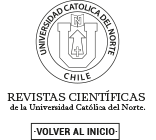Communication in oncology:
What should the physician tell the patient?
Keywords:
Communication, Physician-patient relationship, Disease perception, Neoplasias, Common-sense modelAbstract
Objective: To evaluate the physicians and cancer patient's perceptions about the communication regarding symptoms, causes, timeline, consequences, personal and treatment control, illness coherence and emotional representation of the patients about their diagnosis. Method: 68 adult patients with cancer and 58 physicians who had been working with cancer patients that answered questionnaires in an online platform. Results: The results revealed significant differences regarding the perceptions of physicians and patients about the doctor´s communication. Physicians mentioned that patients are often informed about symptoms, causes, consequences, timeline and disease control, but the patient's responses are discordant. Conclusion: It was concluded that physician's views about their communication are more positives than patients' perceptions about the same phenomena.
Downloads
References
Adán, J. C. M., Moreno-Jiménez, B., Rodríguez-Carvajal, R., Herrer, M. G., & Ruiz-López, P. (2008). Validación psicométrica de la versión española del Cuestionario de Relaciones Médico-Paciente (CREM-P). Actas Españolas de Psiquiatría, 36(2), 94–100.
Altenhofen, V. (2015). A Percepção da Doença em indivíduos cardíacos e sua relação com a comunicação do diagnóstico.Universidade do Vale do Rio dos Sinos, São Leopoldo, RS, Brasil.
Baltar, F., & Brunet, I. (2012).Social research 2.0: virtual snowball sampling method using Facebook. Internet Research, 22(1), 57–74. http://doi.org/10.1108/10662241211199960
Bianchini, D. (2015). A comunicação em oncologia e a percepção da díade profissional-paciente: uma compreensão psicanalítica. Universidade do Vale do Rio dos Sinos, São Leopoldo, RS, Brasil.
Carolina, A., Peuker, W. B., Armiliato, M. J., De Souza, L. V, & De Castro, E. K. (2016). Performance analysis of OFDM modulation on indoor broadband PLC channels. Psicologia: Reflexão E Crítca, 29(4). http://doi.org/10.1186/s41155-016-0007-y
Castro, E. K. de, Lawrenz, P., Romeiro, F., Lima, N. B. de, Haas, S. A., Castro, E. K. K. de,... Haas, S. A. (2016). Percepção da doença e enfrentamento em mulheres com câncer de mama. Psicologia: Teoria E Pesquisa, 32(3), 1–6. http://doi.org/10.1590/0102-3772e32324
Creswell, J. W. (2010). Projeto de pesquisa: métodos qualitativo, quantitativo e misto.(3rd ed.). Porto Alegre: Artmed/Bookman.
Donovan, H. S., Hartenbach, E. M., & Method, M. W.(2005). Patient–provider communication and perceived control for women experiencing multiple symptoms associated with ovarian cancer. Gynecologic Oncology, 99(2), 404–411. http://doi.org/10.1016/j.ygyno.2005.06.062
Frenkel, M., & Cohen, L. (2014). Effective communication about the use of complementary and integrative medicine in cancer care. Journal of Alternative and Complementary Medicine, 20(1), 12–18. http://doi.org/10.1089/acm.2012.0533
Gask, L., & Usherwood, T. (2002). ABC of psychological medicine. The consultation. BMJ (Clinical Research Ed.), 324(7353), 1567–9.
Husson, O., Thong, M. S. Y., Mols, F., Oerlemans, S., Kaptein, A. A., & van de Poll-Franse, L. V.(2013). Illness perceptionsin cancer survivors: what is the role of information provision? Psycho-Oncology, 22(3), 490–498. http://doi.org/10.1002/pon.3042
Iskandarsyah, A., de Klerk, C., Suardi, D. R., Soemitro, M. P., Sadarjoen, S. S., & Passchier, J. (2013). Satisfaction with information and its association with illness perception and quality of life in Indonesian breast cancer patients. Supportive Care in Cancer, 21(11), 2999–3007. http://doi.org/10.1007/s00520-013-1877-5
Leventhal, H., Brisette, I., & Leventhal, E. A. (2003). The common-sense model of self-regulacion of health and illness. In The self-regulation of health and illness behavior(pp. 42–65). London: Routledge.
Leventhal, H., Nerenz, D., & Steele, D. (1984). Illness representations and coping with heath treats. In Hillsdale (Ed.), Handbook of psychology and health (pp. 45–59). New Jersey.
Mcdonald, A. (2016). A long and winding road Improving communication with patients in the NHS. Marie Curie: Care and Support through Terminal Illness. England, UK.
Moore, P., Rivera Mercado, S., Grez Artigues, M., & Lawrie, T. (2013). Communication skills training for healthcare professionals working with people who have cancer. Cochane Database of Sistematic Reviews, (3). http://doi.org/10.1002/14651858.CD003751.pub3
Moss-Morris, R., Weinman, J., Petrie, K., Horne, R., Cameron, L., & Buick, D. (2002). The Revised Illness Perception Questionnaire (IPQ-R). Psychology & Health, 17(1), 1–16. http://doi.org/10.1080/08870440290001494
Moura, J. (2012). Interações e comunicação entre médicos e pacientes na atenção primária à saúde: um estudo hermenêutico. Universidade de São Paulo, São Paulo, SP, Brasil.
Organização Mundial da Saúde. (2017). OMS: câncer mata 8,8 milhões de pessoas anualmente no mundo.
Paschali, A. A., Hadjulis, M., Papadimitriou, A., & Karademas, E. C. (2015). Patient and physician reports of the information provided about illness and treatment: what matters for patients’ adaptation to cancer during treatment? Psycho-Oncology, 24(8), 901–909. http://doi.org/10.1002/pon.3741
Pereira, M. G., & Roios, E. (2011). Crenças e ajustamento psicossocial à doença crónica. Psicologia Na Actualidade, 3, 36–47.
Phillips, L. A., Leventhal, H., & Leventhal, E. A. (2012). Physicians communication of the common-sense self-regulation model results in greater reported adherence than physicians’ use of interpersonal skills. British Journal of Health Psychology, 17(2), 244–257. http://doi.org/10.1111/j.2044-8287.2011.02035.x
Postolica, R., Iorga, M., Petrariu, F.D., & Azoicai, D. (2017). Cognitive-Behavioral coping, illness perception, and family adaptability in oncological patients with a family history of cancer. BioMed Research International, 2017, 1–11. http://doi.org/10.1155/2017/8104397
Quiceno, J. M., & Vinaccia, S. (2010). Percepción de enfermedad: una aproximación a partir del illness perception questionnaire. Psicología Desde El Caribe, 25, 56–83.
Zhang, N., Fielding, R., Soong, I., Chan, K. K., Tsang, J., Lee, V., ... Lam, W. W. T. (2016). Illness perceptions among cancer survivors. Supportive Care in Cancer, 24(3), 1295–1304. http://doi.org/10.1007/s00520-015-2914-3
Downloads
Published
Issue
Section
License
Los autores continúan como propietarios de sus trabajos, y pueden volver a publicar sus artículos en otro medio sin tener que solicitar autorización, siempre y cuando indiquen que el trabajo fue publicado originariamente en Revista Salud & Sociedad (ISSNe:0718-7475).


_(1).png)





